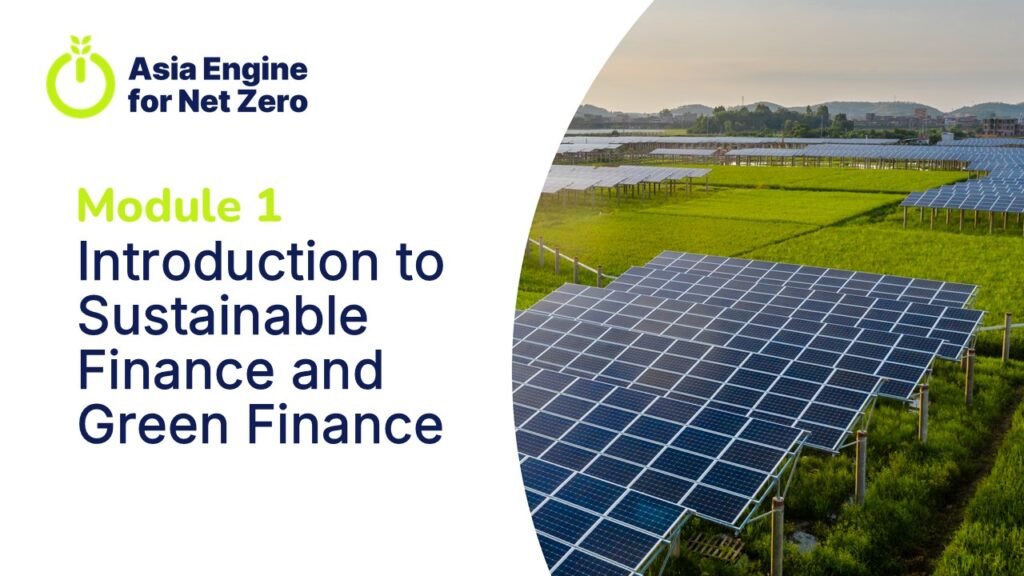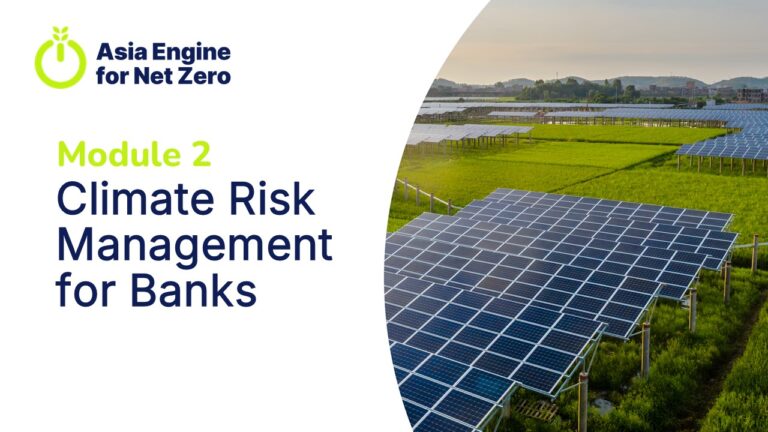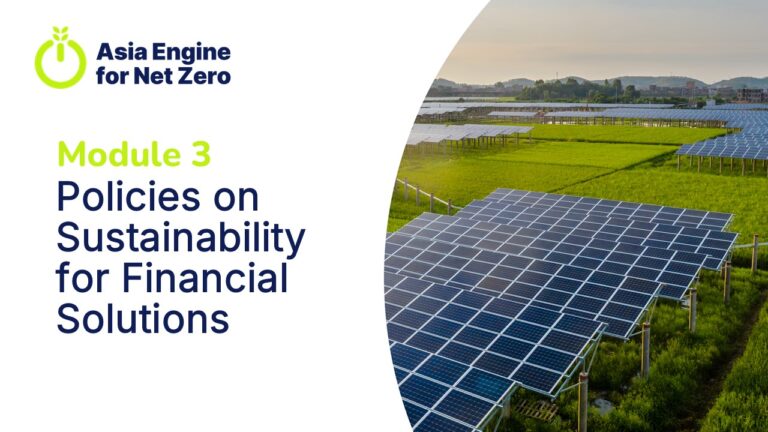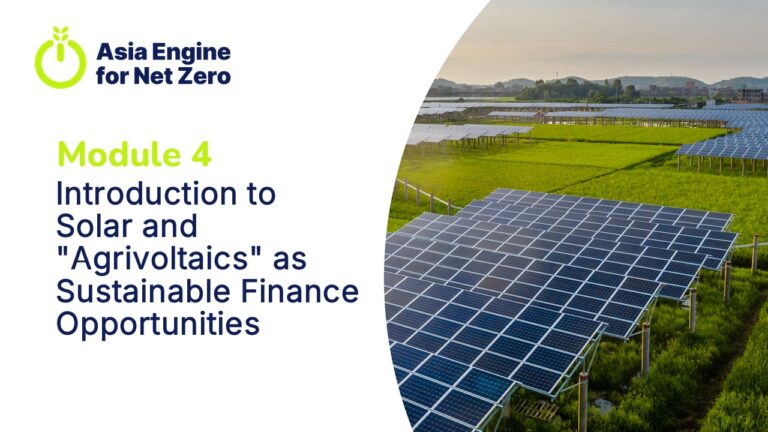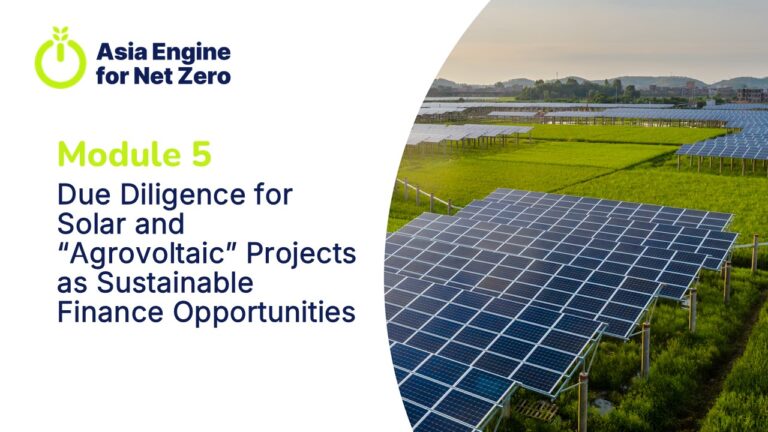Training Program on Sustainable Finance
The Training Program on Sustainable Finance for Thrift and Commercial Banks is tailored to help banks tap into green finance opportunities, including Renewable Energy (RE). Understanding and complying with regulations, such as the Agriculture, Fisheries, Rural Development Financing enhancement Act 2022 or the Revised Agri-Agra Law, necessitates a nuanced understanding of sustainable finance frameworks and implementation strategies. Through participation in this training program, medium-sized banks can enhance their ability to accurately assess the financial viability of sustainable projects.
Module 1. Introduction to Sustainable Finance and Green Finance
The module outlines the evolution of sustainable and green finance in the Philippines, driven by regulatory frameworks from BSP, DOF, and SEC. It differentiates sustainable finance, green finance, and climate finance, emphasizing the broader scope of sustainable finance, which includes environmental, social, and governance (ESG) goals. The module also explores the financial instruments available for green projects, such as bonds, equity investments, and insurance, and highlights key initiatives and programs like the ASEAN Green Bond Standards and the development of sustainability bonds. The Philippines has seen significant growth in the sustainable finance market since 2016, with increasing issuance of green, social, and sustainability bonds by various entities. This growth reflects the country’s commitment to aligning financial practices with sustainable development goals.
Module 2. Climate Risk Management for Banks
The module discusses why and how banks must integrate climate risk management into their strategic planning and credit systems to achieve sustainability goals. This encompasses an understanding of both physical and transaction risks, which include the financial impacts of policy changes, technological advancements, market shifts, and reputation concerns. To assess and mitigate the risks Banks should use tools such as ESG scoring and stress testing. Banks should also align with frameworks such as the Task Force on Climate-Related Financial Disclosures. Lastly, banks should commit to net zero and carbon neutrality. The goal here is to ensure financial sustainability while supporting global climate goals.
Module 3. Policies on Sustainability for Financial Solutions
The evolving policies promoting sustainable finance within financial institutions have significantly impacted financing volumes and practices. Key developments from 2019 to 2023 include the introduction of sustainability reporting, the BSP and DOF’s Sustainable Finance Frameworks, and the AFRD Act. The AFRD Act mandates banks to allocate 25% of loanable funds to agriculture and fisheries, allowing compliance through sustainable projects. It supports green and social finance with incentives like reduced reserve requirements for sustainable bonds. The Philippine Sustainable Finance Framework and Taxonomy Guidelines classify and fund eligible projects, emphasizing avoiding prohibited sectors and adhering to environmental and social standards. Understanding these policies helps banks align with sustainability goals and leverage government support.
Module 4. Introduction to Solar and “Agrivoltaics” as Sustainable Finance Opportunities
This module explores solar energy and agrivoltaics as opportunities for sustainable finance. It highlights the growing investment in renewable energy, particularly solar power, driven by supportive policies and declining costs. It also covers financing approaches, emphasizing project finance for large renewable projects due to its risk management benefits.
Agrivoltaics is then introduced as a dual-use model combining energy generation with agriculture, offering benefits like mitigating land ownership risks, accelerating project development, protecting cash flow, and boosting income while ensuring food security. Different agrivoltaics models and their global adoption were also discussed.
Module 5. Due Diligence for Solar and “Agrovoltaic” Projects as Sustainable Finance Opportunities
The module focuses on due diligence for solar and agrivoltaic projects, emphasizing the need to assess technical, legal, and financial readiness. Essential documents include complete financial models, major contracts, and stakeholder agreements. Smaller-scale projects often use corporate finance, while larger ones use project finance with Special Purpose Vehicles (SPVs). Key considerations are the sponsor’s creditworthiness and the accuracy of financial projections.

